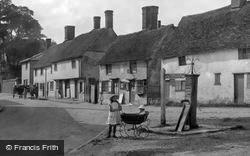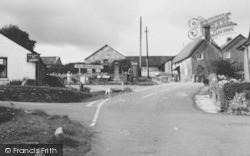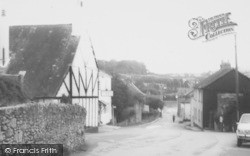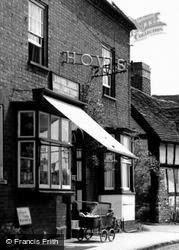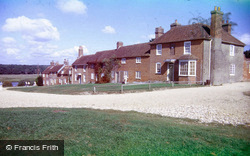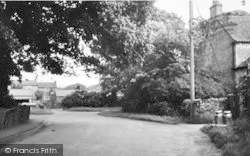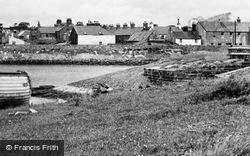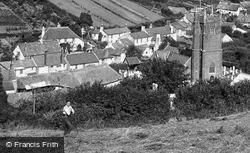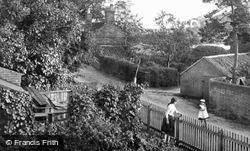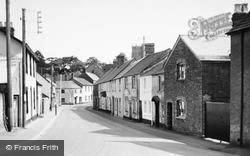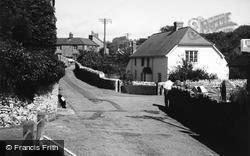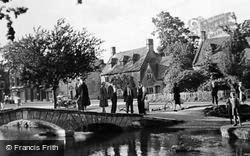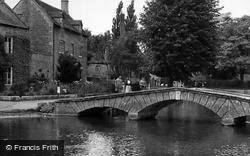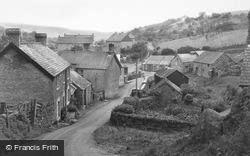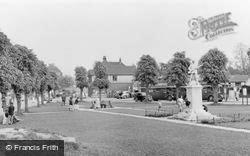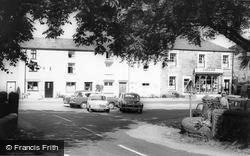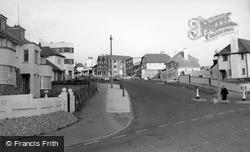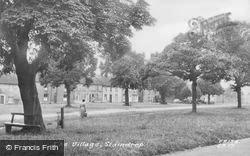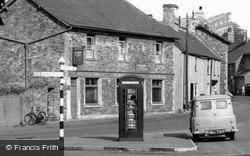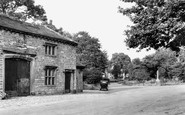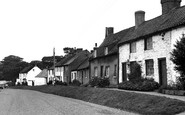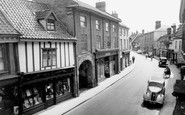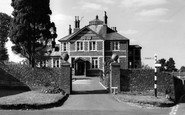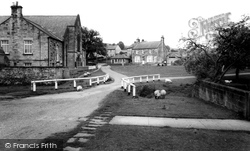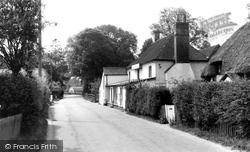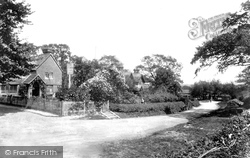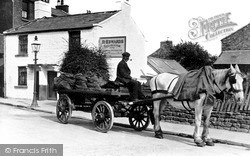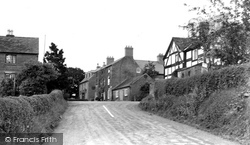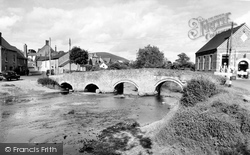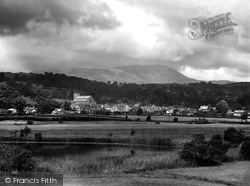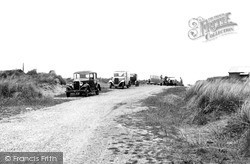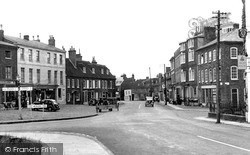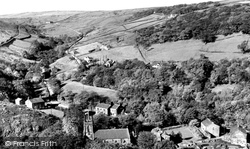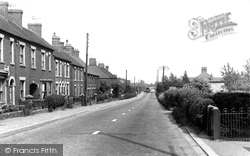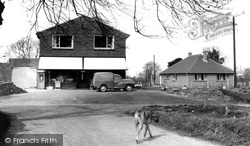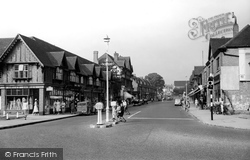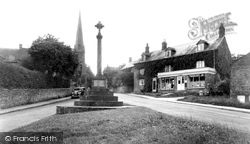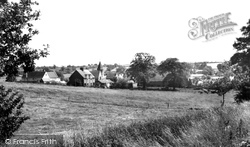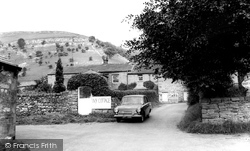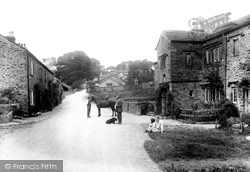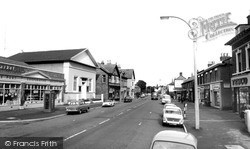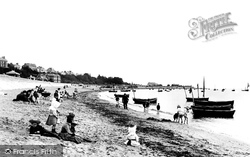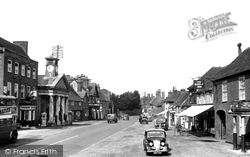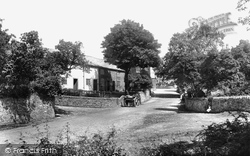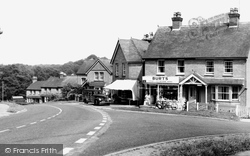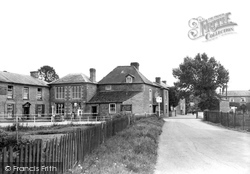Places
5 places found.
Those places high-lighted have photos. All locations may have maps, books and memories.
Photos
9,649 photos found. Showing results 1,401 to 1,420.
Maps
18 maps found.
Books
13 books found. Showing results 1,681 to 13.
Memories
4,612 memories found. Showing results 701 to 710.
1972
Married at the wonderful old church of St. Peter's Walton on the Hill, 5th July 1972. At this time, my parents were living at Tudor Court, Walton St. Walton on the Hill, and Mum, owned the shop below, Anne Cleeves. I had been over in ...Read more
A memory of Walton on the Hill in 1972 by
My Childhood Years In Stebbing
My Grandparents, Harry and Hannah Young lived in the first cottage on the left as you enter the village. I spent most of my school holidays there with them and my Mother and I were evacuated to live with them during ...Read more
A memory of Stebbing in 1940 by
My Mum's Hairdressing Salon
Right on the end of this barn, hidden from view was a small irregular building with it's own door. It had been a small butchers shop some time before my Mum and Dad bought it as a hairdressing salon for my mum to ...Read more
A memory of Bolton-by-Bowland in 1977 by
The Cottages
The cottage nearest to the telegraph pole was my grandmother's. My uncles Ted and Bob lived there with her until they moved to Woodbine Farm, Langtoft. After they left, gran moved in with my family at the other end of the village, ...Read more
A memory of Gristhorpe in 1950 by
Station Road Meopham
My parents moved into Station Rd in 1963, as a newly married couple. There was a terrace of new houses built in Station Rd in 1962/63 & theirs was the furthest house down the road, the end of the terrace, I think No.28? I was ...Read more
A memory of Meopham in 1963 by
Wartime Memories
I well remember living in the village from 1940 to 1944 being evacuated there as a 6 year old from the East End of London. I lived very close to the war memorial and attended school set up for evacuees in the cricket pavilion on ...Read more
A memory of Warborough in 1940 by
A Long Time Ago
In memory land way back in the mists of time, two small boys left these shores and sailed away across the seas to New Zealand, the land of the All Blacks rugby team. They left behind many fond memories and have never really ...Read more
A memory of Halesworth in 1947
Willow Garth
My Grandparents Arthur and Gladys Gossop lived at Willow Garth, opposite the White Horse Pub. Grandad bought it with his Army money. He built a workshop, and began a business which included Wheelwright, Joiner and Contractor. He ...Read more
A memory of Gilberdyke in 1960 by
Berkeley Ave
I lived in Cranford in the late 60's early 70's. It was a great place to live. We moved into our grandparents house. I loved the old village style buildings near the Berkeley Arms and was sad to see a new hotel in its place. There used ...Read more
A memory of Cranford in 1965 by
Wartime Evacuee
I was evacuated from Dagenham during the war with my sisters Joyce and Pat. They lived with the schoolmaster Mr Pearce, whilst I lived with Mr & Mrs Norris Tinylogs, Lily Lane. I remember working with Mr Frank Hazzard during my ...Read more
A memory of Templecombe in 1940 by
Captions
5,016 captions found. Showing results 1,681 to 1,704.
Sheep safely graze on the village green in Danby, a pretty village on the northern edge of the North York Moors. Note the chapel on the left.
In the days when supermarkets were uncommon, Canterton Stores would have provided villagers with almost everything they required. In the middle of Preston Candover is the Victorian church, St Mary's.
Well off the beaten track and close to the West Sussex border, this village is now more commonly known as Oakwoodhill. It has a delightful old church standing on its own in woodland.
The coalman pauses between his deliveries. Village life carried on much as it always had done, even though not many miles away the industrial revolution was in full swing.
Chirbury was the home of Lord Herbert, an Elizabethan philosopher, diplomat and keen historian.
Chirbury was the home of Lord Herbert, an Elizabethan philosopher, diplomat and keen historian.
Beyond the village rises Wetherlam, the most northerly of the Coniston Fells, and over to the left, hidden by cloud, Lancashire's highest peak, the Old Man.
The unmade road leads from the village to the beach. The sand-dunes are covered with marram grass, which helps knit them together and prevent erosion on this windy coast.
Now one of the busiest road junctions in the rural region, in 1952 the centre of Woburn was a study in tranquillity.
Cragg Vale, seen here from above the village, was a remote hamlet above the Calder Valley in the 18th century, when it was the base of a notorious gang of counterfeiters known as the 'Cragg Vale Coiners
This view of the village's main road was taken looking east. It had long since replaced the Old Road which branched off left behind the photographer and forded the river at one point.
The village shop and post office are featured prominently in this picture.
In their summer dresses, the ladies of Cheam go about their task of shopping along Cheam Broadway at lunchtime on a warm day.
The 200ft 14th-century steeple of St Mary's Church is a prominent landmark. There is a stone carving of the Last Judgement above the west door.
This is the countryside at its best! Barford St John is a typical example of the remoteness of some of the villages in north-west Oxfordshire.
Buckden is beautifully situated under Buckden Pike, which soars to 2,302 feet above the village and provides a fine viewpoint across Wharfedale.
This posed picture shows the lower part of the village.The 15th-century tower of the village church is peeping out on the skyline on the left.
The village straddles the main A41 Chester Road with the main shopping area spread out in a linear fashion on either side of the road, as we can see here.
At the beginning of the last millennium, marauding Danes landed on these sandy Devon beaches and put the village of Exmouth to fire and sword.
This photograph shows the Dolphin Hotel on the left of the Square, next to the mid-19th-century Market Hall.
The view looks along the lane towards a 19th-century school and to the left, down Vicarage Fold, stands the village pub.
This sprawling modern village grew up with the coming of the railway at the junction of the A267 and B2203.
In the days before almost everyone owned a car, quiet villages situated miles from the nearest town needed village shops able to supply all the essentials.
The village is set solidly in the heart of market gardening country, and Stotfold's name is a carry forward of the Old English title for a pigpen.
Places (5)
Photos (9649)
Memories (4612)
Books (13)
Maps (18)




